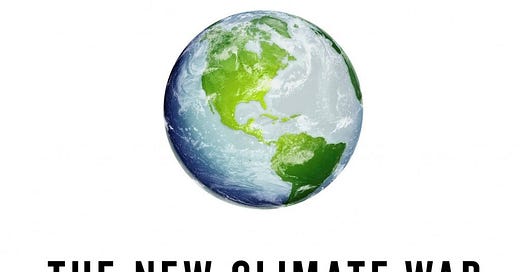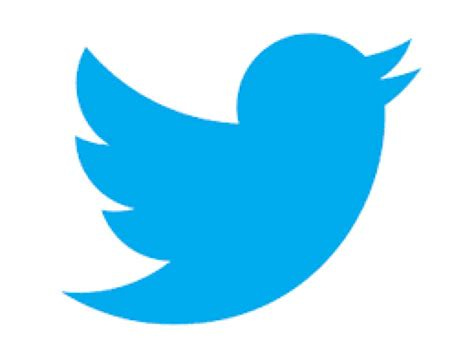Better late than never
I admit that I’m a little behind the curve on reviewing Michael E. Mann’s most recent book. After all, The New Climate War came out in January, nine months ago. We’ve had a whole COVID tinged spring and summer since then. But when the book came out and I reserved it at the library, I wound up being 78th or 79th in line to check out one of the limited number of copies.
So I just recently got a notice that a copy of The Climate Wars was on hold for me and just now had a chance to read the book. And perhaps my lateness might be a good allegory for where we are regarding climate change. As Miami, Florida drowns in king tides, massive wildfires rage across Europe, North America, and Siberia, and more powerful hurricanes whip against Louisiana, I don’t know anyone who wouldn’t say that the best time to start working on global warming was fifty years ago, when the Nixon administration considered action on the problem.
But better late than never.
The background
In a style that is conversational without being too breezy, Mann spends the first part of his book recounting nefarious means by which the tobacco industry paid well-credentialed scientists to spread doubt about the health effects of smoking. These same scientists were some of the individuals first employed by the fossil fuel industry to publicly deny the science of global warming.
Way back in 1988, when the United Nations formed the Intergovernmental Panel on Climate Change (IPCC), ExxonMobil, Shell, British Petroleum, Chevron, The American Petroleum Institute countered with the formation of The Global Climate Coalition to misinform and obfuscate on the science of global warming. Industry front groups like Heartland Institute, Competitive Enterprise Institute did their part to create climate change alternative facts with op-eds in newspapers, talking heads on TV, and climate change denying books.
Mann does not dwell long on this part of the climate wars history, which is the topic of Merchants of Doubt, the outstanding book by Naomi Oreskes and Erik M. Conway.
Mann’s book might be thought of as Merchants of Doubt Part II, picking up the story now that the fossil fuel industry can no longer deny that global heating is happening. Their campaign to keep their profits up nonetheless continues, and they are relying on tried and true methods of keeping the public confused and uncertain about global climate change. Mann categorizes these persons and organizations as deceivers, dissemblers, down players, deflectors, dividers, delayers, and doomers. All together Mann calls them “inactivists.”
The Indian weeps
Like Mann, one thing that impressed me when I was a kid, and something that probably influenced my attitudes toward the environment, was the famous Crying Indian ad, the one in which tears are brought to the eyes of a Native American who canoes from pristine waters to a fouled polluted landscape.
I’d assumed, as did just about everybody else, that the people who had put up the ad were concerned citizens, folks trying to get my preteen self and the rest of the country to ensure that our soda pop bottles and emptied food containers made it to the trash bin instead of littered throughout the landscape. If we cared enough to properly dispose of our cans and bottles, our rivers would run clear and the land would be restored to its indigenous cleanliness.
But the ad was the ingenious product of Madison Avenue and financed with money from Anheuser-Busch, Coca-Cola, Pepsi, and other companies. They successfully convinced us that the containers that they used to ship their products weren’t their problem. The tearful Indian ad implied that pollution was caused by me and other sloppy, wasteful, people. And through such deflection these companies were able to scuttle legislation that would have required deposits on cans and bottles and required them to take some responsibility for their waste.
Which serves as the theme to one of Mann’s chapters: It’s Your Fault. The fossil fuel industry has used advertising and PR to shift the responsibility of climate change to you and me. So we’re supposed to buy hybrids, eat less meat, and do small collective acts that will save the planet, all the while the fossil fuel industry is unencumbered by taxes or regulations to rein in their emissions.
Climategate
“Climategate,” the false controversy stirred up by emails stolen from climate scientists from East Anglia University, was created by the fossil fuel industry and its fellow travelers to depict the scientists as hell bent on tricking the world into believing a self-serving mythology of climate change. Lost in the press coverage at the time, now over ten years ago, was the question as to who hacked the emails in the first place.
That remains a mystery, yet Mann makes the connection between Climategate and Russiagate. Both involved stolen emails; Julian Assange wound up playing a part in both; and both tried to stir up false controversies.
At the time of Climategate, a lot of folks implicated the Russian government or Russian associated no-goodnics as the thieves of the East Anglia emails. Mann continues to point a finger at Russia, explaining that Russia, as a petrostate, would not be embarrassed to stoop to such means to further its interests. As the climate scientist relates, there is some evidence tying Russia to the Yellow Vest revolt in France, and some proof that Russia recently tinkered in Canadian politics. Climategate fits Russia’s modus operandi. Russia could be guilty in the case of Climategate, but I’m still halfway skeptical. We still don’t have firm proof that Russia was behind stealing the emails.
And there is more
The barrage against progress on global heating is unrelenting. Conservatives and big business cry crocodile tears over windmills killing birds, while simultaneously trying to loosen legislation that is meant to mitigate such human caused avian mortality. Solyndra, an innovative solar panel company and recipient of a $535 million U.S. Department of Energy loan guarantee, ultimately went bankrupt. The right-wing news spotlighted this failure to paint any support of renewable energy as corrupt.
Ad hominem attacks on Gretta Thunberg and Al Gore are similar distractions. As long as anybody is put in the position of defending Gore or Thunberg, that is less time spent on getting the real work of bringing carbon emissions down. Nonsollutions—carbon capture, natural gas, geoengineering—are endorsed by inactivists. The American Legislative Exchange Council (ALEC), another front group for big business, drafts laws for state legislatures to tax electric vehicles or even outlaw Teslas.
A carbon tax
Mann favors a carbon tax or a cap and trade scheme. A carbon tax is simple. Tax products according to how much carbon is generated in their production, and let the market settle things out from there. Natural gas and electricity go up in price? Folks may lower thermostats, turn off lights, or install rooftop solar. It’s their choice in how to reduce what they spend on fossil fuels. Mann gives the example of Australia when it implemented a carbon tax. Emissions went down 10 percent when the tax was levied and went back up when the tax ended. Mann emphasizes that a carbon tax is something many members of the GOP have endorsed.
Mann explains that a tax is only one tool in the climate toolbox and agrees that, Crying Indian aside, yes, solving the climate crisis will take the personal actions of individuals. He would agree that my personal campaign to get folks to ride their bikes, get on the bus, and dry their clothes on clotheslines is still worthy of pursuit.
Mann is pilloried from business and GOP, but he can also get similar treatment from liberals and the Left as well. He says that while many of the things that they are fighting for—Medicare for all, higher wages, affordable housing and education—are worthy goals which he supports, they are separate issues from clearing our skies of carbon and should not be tied to working on climate change. He mentions Naomi Klein and her efforts in her recent books to tie climate action with a liberal social agenda.
Mann knows that the climate crisis is a big problem and is going to need the buy-in of as many folks as possible: liberals, left, right, conservatives, etc. Tying action on climate change to a liberal wish list like the Green New Deal risks alienating conservatives, such as former Secretary of State George Schultz, who has endorsed market-based approaches to solving the climate crisis. Mann criticizes the Green New Deal for its hostility to taxing carbon.
Deflection
Mann calls out Bjorn Lomborg, who gussies himself up as an environmentalist. Lomborg tries to convince the public that we have other priorities to work on besides climate change. Never mind that progress on global warming does not mean that we cannot at the same time ameliorate poverty, enhance public health, or accomplish a host of other noble ends. Lomborg downplays the threat of sea level rise, because rising seas will only affect six percent of the planet’s population. That six percent is 400 million people. Almost half a billion people are unimportant?
A hero for many folks on the Left, Michael Moore is properly skewered for his support for Planet of the Humans, the documentary by Moore’s long-time collaborator Jeff Gibbs. Gibbs amateurishly skewers renewable energy and points to the world’s growing population as the real problem. This is complicated and could be the subject of an entire Substack. Let’s just say the film, which could not find a distributor and wound up on YouTube for free viewing, plays into the hands of the inactivists.
Doom and gloom
Mann examines the ones he calls the doomists, the ones who say that there is no way to get the political will to address climate change or say that the tipping points have already tipped. It’s too late or too ambitious. Jonathan Franzen, whose book Freedom presages much of his climate doomist view, wrote in the New Yorker of the coming climate apocalypse, saying that fighting the climate war against the fossil fuel industry is unwinnable.
I don’t think Franzen gets a dime from oil companies or King Coal, but he unwittingly plays into their playbook of inaction. Gloom stifles any hope or any gumption to do the work that needs to be done to keep our planet from going past the two degrees Celsius that may leave us some room of safety for us humans and the rest of the living world. We are fated to live in a world of massive rising temperatures and massively rising profits for Chevron, ExxonMobil, and all the coal companies in the world.
Hope
Or, as Mann says as he wraps up his book, we can have a little faith in ourselves, perform some fairly straightforward political and policy work. We can educate children and young people on the wonders and workings of the planet they share with tens of thousands of other species. We can make some personal lifestyle choices, and avert a climate disaster.
After all, better late than never.
For more environmental news and comment follow me on Twitter @EcoScripsit





An interesting read. I haven't read this book or Merchants of Doubt - I suspect it would be too depressing. But this does sound a little hopeful.